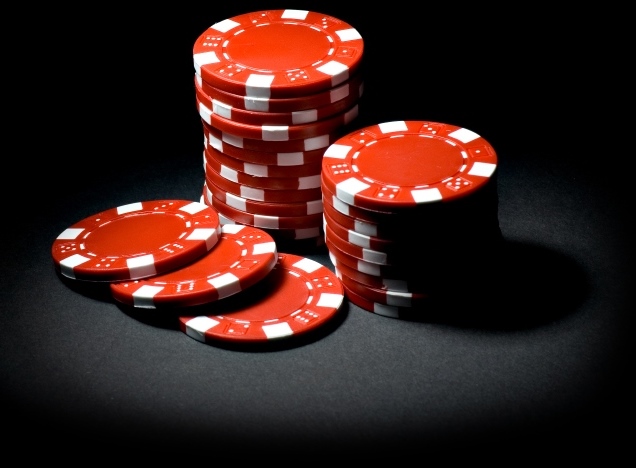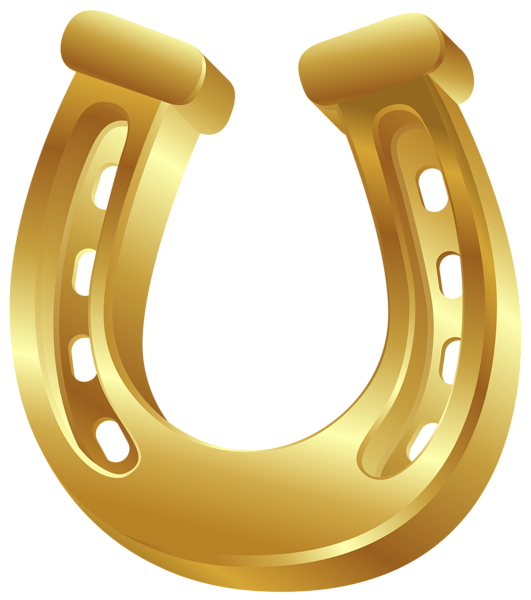- The Reviews
- UNIBET Review 2026
- MANSION Review 2026
- BETSAFE Review 2026
- BWIN Review 2026
- BETSSON Review 2026
- JETBULL Review 2026
- WILLIAM HILL Review 2026
- BET-AT-HOME Review 2026
- ZET Casino Review 2026
- CASINO.com Review 2026
- Mr GREEN Review 2026
- 888 Review 2026
- VEGAS CASINO ONLINE Review 2026
- LAS-VEGAS USA Casino Review 2026
- SUN PALACE Casino Review 2026
- ROYAL ACE Casino Review 2026
- PLANET 7 Casino Review 2026
- CLUB WORLD Casino Review 2026
- SILVER OAK Casino Review 2026
- Free Casino Games
US
- Best Online Casino Games Guide
- Choose Your Best Online Casino
- The Best Casino Games
- Online Card Games
- Best Online Machine Games
- Table Games
- Online Slots
- Complete Modern Online Blackjack Guide
- Free Blackjack Basic Strategy
- Simplified Blackjack Playing Strategy
- How to Play Blackjack Online Like Pros
- Advanced Blackjack Rules and Strategy
- Step-by-Step Blackjack Playing Procedures
- Blackjack Playing Options Guide
- Master Blackjack Card Counting
- Modern Blackjack Card Counters Challenge
- Which is the Best Blackjack Betting System?
- Nine-Count Blackjack Strategy Review
- Blackjack Myths and Errors
- Online Roulette
- Sportsbook
- Online Poker
- Online Video Poker
- Online Scratch Cards
- Online Bingo
- Online Baccarat
- Online Craps
- Asian Casino Games
- Online Keno
- Online Sic Bo
- Casino Bonuses
- Online Casino Reviews
- UNIBET Review, Casino, Sportsbook, Poker & Live Dealers
- BETSAFE Review, Casino, Poker, Live Dealers & Sportsbook
- MANSION Review, Casino, Sportsbook & Live Dealers
- BWIN Review, Sportsbook, Casino, Poker & Live Dealers
- BETSSON Review, Sportsbook, Casino, Live Dealers, Poker
- JETBULL Review -Casino, Sportsbook, Live Dealers
- BET_AT_HOME Review, Sportsbook, Casino, Poker, Live Dealers
- WILLIAM HILL Review -Casino, Sportsbook, Live Dealers, Poker
- ZET Casino Review
- Mr GREEN Review -Casino, Sportsbook & Live Dealers
- CASINO.com Review -Online Casino & Live Dealers
- Las-Vegas USA Casino Review
- Sun Palace Casino Review
- Royal Ace Casino Review
- Planet 7 Casino Review
- Club World Casino Review
- Vegas Casino Online Review
- Silver Oak Casino Review
- Free Casino Games
What is The Gambler’s Fallacy
A common gamblers’ fallacy called ‘the doctrine of the maturity of the chances’ (or ‘Monte Carlo fallacy’) falsely assumes that each play in a game of chance is not independent of the others and that a series of outcomes of one sort should be balanced in the short run by other possibilities. A number of ‘systems’ have been invented by gamblers based largely on this fallacy; casino operators are happy to encourage the use of such systems and to exploit any gambler’s neglect of the strict rules of probability and independent plays.
Gambling Fallacies and Systems
Myths, misconceptions, and fallacies about gambling abound and run the gamut from merely believing that slot machines that haven’t hit in a while are “due” to full-blown gambling systems that purportedly can beat negative expectation games. Players who fall prey to these misunderstandings usually end up losing more money than they would otherwise.
Casino managers and online casinos are also vulnerable to losing money – the casino’s money – and therefore would be well served to be aware of such fallacious thinking. In all aspects of gaming, decisions and actions based on superstition, myths, and “bad math” invite disaster. This section discusses some of the most common gambling fallacies and betting systems.
- Bonus Amount: $3,000 up to $10,000. The best daily bonuses on the internet.
- Games: An incredible number of slots, table games, and video pokers, including HTML5 games.
- Strong security protocols of 128-bit encryption
- Audited and guaranteed fair by TST
- Website: https://www.lasvegasusa.eu/casino/
- Established: 1999
- Software: Real Time Gaming (RTG)
- US and Canadians players supported
- Platforms Supported: Windows, Mac, iPhone, iPad, & Android.
- Type of Casino: Online & Instant or download.
- Free Slots Games: Yes
- Customer Support: 24/7 live chat support, as well as a toll-free phone number: +506-283-0061, and e-mail support
Write your review of Las-Vegas USA Casino
- Website: http://www.royalacecasino.eu
- Casino Type: download client, instant play, and mobile
- Software: Real Time Gaming (RTG)
- Owner: Emoney Processing Casinos LTD
- Established: 2009
- Casino Promotion: 100% Match Deposit Bonus up to $4,000, Daily and Weekly Bonuses
- Coupon Code: CASINO400
- Currencies: US$, Euros, Yen, Pounds, Bitcoin
- Mobile: both desktop and mobile compatibility
- VIP Program: 5 levels Available
- Support: World Class Support, 24/7 live chat & Toll-free phone number for USA and Canada
- Security: 128-bit SSL encryption
- Certified by: CDS (Central Disputes System)
- Languages: English
- License: Costa Rica
Write your review of Royal Ace Casino
- Bonus: 400% up to $10,000.
- Website: https://www.sunpalacecasino.eu/
- Software: Real Time Gaming (RTG)
- Deposit Methods: ClickandBuy, MasterCard, Money Order, Neteller, Visa Electron, instaDebit, Visa, MST Gift Card, Skrill, Bitcoin
- Withdrawal Methods: ACH, Cheque, Money Order, Neteller, Skrill
- Withdrawal Times: EWallets: 2-5 days, Credit / Debit Cards: 10-12 days, Bank Transfers: 7-12 days, Cheques: 21-28 days
- Pending Time: 3-7 days
- Withdrawal Limit: $5,000 per week
- Games: Incredible number of games of all types
- support: 24/7 through live chat, phone, or e-mail
- Support Response Time: 24 hours via email or Instant using Live Chat.
- Encryption: 128-bit SSL
- Audited and found fair by TST
- Languages: English.
- Progressive Jackpots: up to Million-Dollar.
- Restricted Countries: Bosnia, Costa Rica, Malaysia, Morocco, Netherlands, Russia.
Write a review of Sun Palace Casino
- Bonus: 320% Bonus + 45 Free Spins
- Casino Website: https://www.silveroakcasino.com/
- Casino Promotion: 320% Match Deposit Bonus up to $10,000 in 10 first deposits, up to $100 No Deposit Bonus, Weekly and Monthly Cashback, and much more.
- Casino Type: download client, instant play, mobile, and live dealers
- Software: Real Time Gaming (RTG)
- Live Casino: Available Live Dealers Casino
- Owner: Emoney Processing Casinos LTD
- Established: 2009
- Currencies: US$, Euros, Yen, Pounds, Bitcoin
- Mobile: both desktop and mobile compatibility
- VIP Program: 5 levels Available
- Support: World Class Support, 24/7 live chat & Toll-free phone number for USA and Canada
- Security: 128-bit SSL encryption
- Certified by: CDS (Central Disputes System)
- Languages: English
- License: Costa Rica
Write your review of Silver Oak Casino
- Bonus: First Deposit 350% Bonus + 25 Free Spins
- Website: https://www.planet7casino.com/
- Casino Type: download client, instant play, mobile, and live dealers
- Software: Real Time Gaming (RTG)
- Live Casino: Available Live Dealers Casino
- Owner: Emoney Processing Casinos LTD
- Established: 2008
- Casino Promotion: 200% Match Deposit Bonus up to $4,000, and much more.
- Currencies: US$, Euros, Yen, British Pounds, Bitcoin
- Mobile: both desktop and mobile compatibility
- VIP Program: Available
- Support: World Class Support, 24/7 live chat & Toll-free phone number for USA and Canada
- Security: 256-bit SSL encryption
- Certified by: CDS (Central Disputes System)
- Languages: English
- License: Costa Rica, Cyprus, the United Kingdom, and the Netherlands.
Write a review of Planet 7 Casino
- Bonus: Get 300% Match up to $3000 FREE Welcome Bonus
- Website: https://www.clubworldcasinos.com
- Software: Real Time Gaming (RTG)
- Mobile: Android, iPhone, iPad
- Casino Type: Download, Instant Play, Mobile
- Currency: US dollars
- Language: English
- License: Curacao
- Owner: Club World Casinos Group Casinos
- Established: 2005
- Audit: RTP Not publicly audited
- Currency: US dollars
Write a review of Club World Casino
- Bonus: Get 300% Match up to $3000 FREE Welcome Bonus
- Website: https://vegascasinoonline.eu/
- Established: 1999
- Software: Real Time Gaming (RTG)
- Currencies: US$
- US and Canadians players: supported
- Bonus Amount: up to $11,000 Match Bonus
- Platforms Supported: Windows, Mac, iPhone, iPad, & Android.
- Type of Casino: Download & Online Instant Play.
- Free Slots Games: Yes
- Owner: Main Street Vegas Group Casinos
- License: Costa Rica
- US Customer Support: (877) 691-5124
- Canada Customer Support: (888) 387-6717
- Email Address: [email protected]
- Live Chat: Yes
- Response Time: 24 hours via email or Instant using Live Chat.
- Languages: English.
- Progressive Jackpots: up to 1 Million-Dollar.
Write a review of Vegas Casino Online
Casino Games Blog 2026
The Bitcoin Casino Guide
The Law of Averages and Common Fallacies
Serious misunderstandings about independent events and the law of averages are at the heart of many gambling fallacies. One of the most common fallacies, for example, is that the plays in a game of chance are not independent and therefore a series of outcomes of one sort should be balanced in the short run by outcomes of another sort.
This particular myth is so common it has been dubbed “the gambler’s fallacy.”
Another popular misconception is that gambling systems can be devised to win in the long run against the casino’s negative expectation games of chance. The existence of such a system is mathematically impossible, of course, thanks to the law of large numbers.
As mentioned, this mathematical law is sometimes referred to as the law of averages and correctly interpreted means that the gambler’s total loss divided by his total action will approach his expected loss divided by his total action.
A key here is the notion of ratio or percentage. The law does not state that the amount of money lost will approach the expected amount lost. The law of averages is about the percentage deviation between actual and expected results – the greater the number of trials, the smaller the percentage deviation.
The actual (or absolute) deviation, however, should grow as the number of trials increases. The following simple example using tosses of a fair coin illustrates this point.
Comparing Absolute and Percentage Deviation – Tosses of a Fair Coin
Number of Tosses | Number of Heads | Percent Heads | Deviation – Number of Heads | Deviation – Percent Heads |
100 | 53 | 0.530 | 3 | 0.030 |
1,000 | 520 | 0.520 | 20 | 0.020 |
10,000 | 5100 | 0.510 | 100 | 0.010 |
100,000 | 50,500 | 0.505 | 500 | 0.005 |
1,000,000 | 501,000 | 0.501 | 1,000 | 0.0001 |
This table shows how the percentage of heads approaches the expected 50% as the number of trials increases – the deviation between the percentage of heads and the expected percent decreases as per the law of averages – but the deviation between the actual number of heads and the expected number increases. For gamblers, while the percentage of money lost should approach the theoretical percentage loss, the difference between the amount of money lost and the expected loss will likely grow.
When reading the fallacies that follow, keep in mind the correct interpretations of independent events and the law of averages, as these are the two most commonly misunderstood mathematical concepts related to gambling fallacies.
Hot and Cold Streaks
A fair coin is flipped ten times and results in eight heads and two tails. Does this mean that more tails will show up in the next few flips? Those who subscribe to this fallacy believe that the “law of averages” will rescue them in the midst of a losing streak by turning things around.
After all, in the long run, there should be 50% heads and 50% tails, so more tails should be coming up now to “even out” things. Others might expect more heads to show up because heads are “hot.” Both views are incorrect.
Because the tosses are independent trials, the probability of heads is 50% on each and every toss regardless of what happened on previous tosses.
Situations similar to this coin example occur in the casino. Suppose, for example, that eight spins of the roulette wheel result in eight consecutive red numbers. Is black now more likely on the ninth spin because it is “due,” or is red more likely now because it is hot?
Many people believe that if one color has come up several times in a row in roulette then the other color is now either more or less likely. The truth, of course, is that each color has the same probability of occurring on every spin, regardless of the outcomes of the past spins.
Viewing it from the long term, for every sequence of eight consecutive reds that is followed by a black on the ninth spin, there will another sequence of eight reds followed by a ninth red. The bottom line is that in a game like roulette, every trial is independent and past history is irrelevant.
This principle applies to other casino games involving independent events. The dice may appear to be “hot” at a craps table, but this does not change the odds of the shooter’s throwing the various numbers. Similarly, keno numbers do not turn hot or cold. For independent events, each outcome is entirely unrelated to past outcomes and so “hot” and “cold” streaks do not really exist in the sense that particular outcomes become more or less likely to occur than normal.
Streaks are just statistical fluctuations and no one can predict whether a streak will continue or when it will end.
Some betting systems use the fallacious logic of riding streaks. Others use the equally faulty logic of betting against the streak.
The former, of course, is based on the hot streak fallacy; the latter on the mistaken notion that in the short run things must even out according to the “law of averages.”
Considered thought about the nature of independent events and the correct application of the law of averages will reveal these systems to be worthless.
Debunking the Notion of Betting on a Winning Streak
In July 2000 column on baccarat in a major gaming newspaper, the columnist was describing “excellent player opportunities” in baccarat. He stated:
“Let’s say that the player has won the last three decisions. What would you bet on the player or the bank? If you said the bank, you would be wrong!
Bet on the player, because the player is having the winning streak . . . Winning streaks offer some of the best opportunities a player can get . . . Betting on streaks will ensure that you will never be on the wrong side of any winning streak.
There will be times when the expected trend or pattern does not materialize but there will also be times, probably many more times when the expected trend or pattern continues or repeats, and this is a huge advantage for the player.”
Unfortunately, this is bad advice.
The probability that the player will win at baccarat is 44.62%. If the player wins three times in a row, the probability that it will win the fourth time will be almost exactly the same.
Luck
Closely related to the hot/cold streak fallacy described above is the notion of “luck.” Players experience, or attribute to themselves, good luck when they are winning and bad luck when they are losing. As with hot and cold streaks, however, luck is merely a natural statistical fluctuation in one direction or another – good luck is a fluctuation of successful bets and bad luck is a fluctuation of unsuccessful bets. It is a fallacy to think that luck exists as a tangible quantity.
Betting Systems
A betting system is a method of placing and varying bets in a predetermined way to try and beat a game that is favorable to the house and unfavorable to the player.
It is a mathematical fact, however, that betting systems do not work for negative expectation games.
It is not possible to change or manipulate the laws of probability and mathematics to turn a negative expectation game into a positive one.
Every such proposed gambling system has at least one fundamental flaw that prevents the player from gaining the advantage.
Read about Roulette Systems Strategies and Scams »
Martingale or Doubling-Up Progression
Probably the most common and oldest gambling system is the Martingale or doubling-up system. Commonly used for bets with even-money propositions in games such as roulette, the idea behind this system is simple. The player keeps doubling the stake with each consecutive losing bet so that when he eventually wins, he covers all the losing bets and makes a small profit.
Assuming an initial bet of one unit, if you lose the first bet, then you bet two units. If you lose that one, you bet four units, and if you lose that one you bet eight units. This progression continues until you finally win a bet at which time your winning amount will equal one unit more than the sum of all previous losing bets. The net profit is one unit.
The problem with the doubling-up system is that occasionally the player will either hit the maximum bet limit imposed by the casino or run out of money.
A string of consecutive losses will eventually necessitate a bet size prohibited by either house imposed bet limits or finite capital. Starting with a $5 bet, for example, and incurring ten consecutive losses would require a bet of $5,120.
Twenty consecutive losses would require a bet of $5,242,880. Players who think the chance of such disastrous losing streaks is so small it can be ignored are guilty of fallacious reasoning.
While the probability is relatively small, these losing streaks will sometimes occur and when they do, the money lost is more than enough to compensate for the one-unit profits gained when the system “works.”
The intelligent gambler knows that when this system is played for some time, the devastating cycles will restore his overall return to the negative theoretical expectation. In short, the player will win a small amount frequently and lose a large amount occasionally, but the percentage return remains the same.
A variation on the Martingale is the Great Martingale system, whereby the player doubles his previous losing bet and adds one unit. Thus the bet progression would be 1 unit, 3 units, 7 units, 15 units, and so on. With each bet, the potential win increases by one unit. The fundamental flaw with this system is the same as with the Martingale – the Great Martingale is just a quicker way of going broke.
D'Alembert or Pyramid System
The D’Alembert system calls for the player to increase his bet size after a loss and decrease the bet size after a win. Assume one-unit increments. If the player wins his first bet, the sequence is over and the player begins a new one.
If the first bet loses, the player increases the second bet by one unit.
Thereafter, the bet is increased one unit after each loss and decreased by one unit after each win. The end result is that if the number of wins eventually balances the number of losses, the player will have profited one unit for each win in the sequence.
The D’Alembert, or pyramid system is based on the so-called “law of equilibrium,” which falsely asserts that any two opposite events, such as red and black in roulette, must eventually win an equal number of times.
This so-called “law” is the same “gambler’s fallacy” encountered above in the discussion of hot and cold streaks where a gambler will bet on black after a series of consecutive reds, believing black must be due. It is also referred to as the doctrine of the maturity of chances and the Monte Carlo fallacy.
Those who succumb to this fallacy are mistaking the short run for the long run. The ratio of blacks to reds in roulette will approach 50% in the long run, but there is no guarantee this will be the case in the short term.
Pyramid systems will break even in the long run against a 50/50 (fair) random process and will lose at the house percentage edge against a house favorable game.
As with the Martingale System, casino betting limits and the player’s finite capital are the downfalls of the pyramid system.
Cancellation System
The typical cancellation system proceeds as follows:
The player writes down a series of positive numbers whose sum is equal to the amount he desires to win. At any stage, the next bet is the sum of the first and last numbers currently in the series.
If the bet wins, the two numbers just used are crossed off the list. If the bet loses, the player writes the amount lost at the end of the list. Betting continues in this fashion, crossing out numbers when a bet is won and writing down a new number (an amount of money) when a bet is lost, until all the numbers (old and new) have been canceled out.
At this point the player will have won an amount equal to the sum of the original numbers in the list. To llustrate the cancellation system, suppose the player seeks to win 25 units and uses as an initial list 2, 3, 1, 6, 5, 8. The table below shows what might happen:
Current List | Bet Size | Outcome | Current Overall Profit |
2, 3, 1, 6, 5, 8 | 10 | Lose | -10 |
2, 3, 1, 6, 5, 8, 10 | 12 | Lose | -22 |
2, 3, 1, 6, 5, 8, 10, 12 | 14 | Win | -8 |
3, 1, 6, 5, 8, 10 | 13 | Lose | -21 |
3, 1, 6, 5, 8, 10, 13 | 16 | Lose | -37 |
3, 1, 6, 5, 8, 10, 13, 16 | 19 | Win | -18 |
1, 6, 5, 8, 10, 13 | 14 | Lose | -32 |
1, 6, 5, 8, 10, 13, 14 | 15 | Lose | -47 |
1, 6, 5, 8, 10, 13, 14, 15 | 16 | Win | -31 |
6, 5, 8, 10, 13, 14 | 20 | Win | -11 |
5, 8, 10, 13 | 18 | Win | +7 |
8, 10 | 18 | Lose | -11 |
8, 10, 18 | 26 | Win | +15 |
10 | 10 | Lose | +5 |
10, 10 | 20 | Win | +25 |
Total | 215 | 7 Wins, 8 Loses | 25 unit profit achieved |
Note that a flat bet would lose with this sequence since there are eight losses and only seven wins. With the cancellation system used here, a 25-unit profit is achieved as advertised.
The goal is not always realized, however, as bet sizes may escalate so that the next required bet exceeds the player’s or table’s limit. Again, the familiar flaw as with the Martingale and D’Alembert systems – house limits and player resources.
Margin of Error
Another way to represent the 95% confidence limits is to report the “plus or minus” part of the result. For example, the 95% confidence limits for the series of 100,000 wagers on red in roulette, 4.63%, and 5.89%, were derived from the calculation of 5.26% ± 0.63%.
This means there is a 95% probability that the actual win percentage will be within 0.63% of the expected win percentage. That is, 0.63% represents the maximum deviation from the theoretical win percentage that can be expected (95% of the time) for 100,000 plays. The maximum deviation is similar to what statisticians call the margin of error.
In statistical sampling, the margin of error represents the maximum likely error attached to a statistic.
Ordinarily, the statistic is being used to estimate an unknown population parameter. In our present context, the 100,000 wagers constitute a sample from the population of all such wagers, and the observed win percentage would serve as an estimate of the theoretical (population) win percentage.
Here, however, the objective is not to estimate an unknown parameter since the relevant parameter, theoretical win percentage is known. Rather, we are interested in knowing how unusual an observed win percentage is, given the known theoretical win percentage.
For the 100,000 roulette wagers on red, an observed win percentage that is not within ±0.63% of the theoretical win percentage is unusual since the probability of that happening is only 0.05. As long as the observed win percentage is within ±0.63% of the theoretical win percentage, the difference can be attributed to normal statistical fluctuations.
In this sense, 0.63% serves as a 95% confidence level “margin of error” for the win percent associated with a series of 100,000 wagers on red. Similarly, the margin of error for 1,000 wagers is 6.32%, for 10,000 wagers it is 2.00%, and for 1,000,000 wagers it is 0.20%.
Was This Helpful?
Recommend us on Facebook










